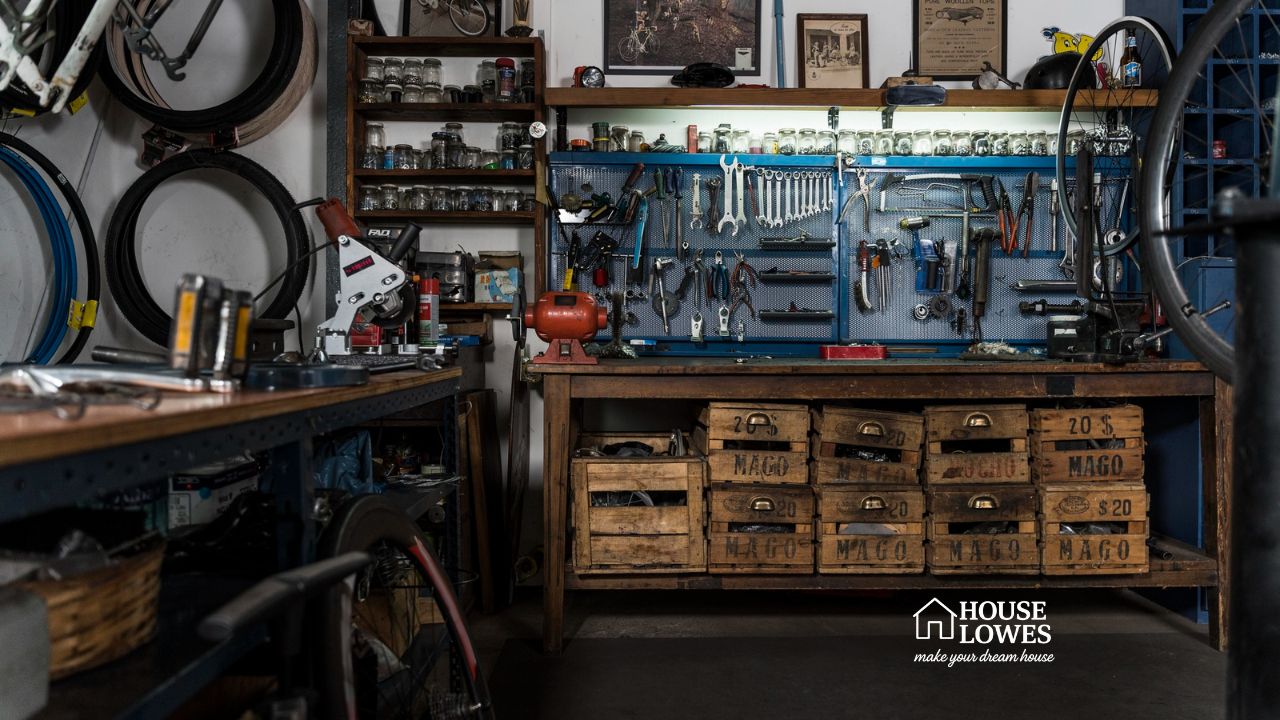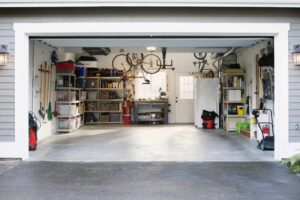Your garage seems like the perfect dumping ground for everything that doesn’t fit inside your house. It’s spacious, it’s convenient, and hey, it’s technically still part of your home, right? Wrong.
While your garage may feel like an extra room to store unwanted items, it’s actually one of the worst places to keep certain things. Temperature swings, humidity, pests, and lack of climate control can destroy your belongings faster than you’d think.
- That expensive photo art from your wedding? Ruined by moisture.
- Your important documents? Gone!
- Your emergency pet food supplies? Spoiled and even dangerous.
Before you shove another box into that corner, you need to know which items should never see the inside of your garage. These seven things might seem harmless to store out there, but they could cost you hundreds or even thousands of dollars in damage.
Art
According to the founder of ArtSugar, Alix Greenberg, Art should never be stored in the garage “…because the environment isn’t controlled, you’re leaving your precious artwork at risk for mold, mildew, and other conditions that could damage the work,” she said.
And she’s not wrong; art pieces are susceptible to temperature changes and humidity. When the temperature fluctuates between hot summers and cold winters, your artwork expands and contracts. This movement can crack paint, warp canvas, and damage frames.
Moisture is even worse for them. High humidity can create mold on canvas and other paper materials. It can also make colors fade or blend together.
Important Documents
Birth certificates, insurance papers, tax records, and other important documents should not be stored in your garage. Paper is like a sponge for moisture. Even small amounts of humidity can make documents wrinkle, yellow, or develop mold spots.
Even if you think they’re safe in a filing cabinet, garages are prone to flooding, elements, and theft. Keep these documents in a fireproof safe inside your home, or better yet, scan them and store copies in a cloud service like Google Drive.
If you must store them in your garage, then follow the advice of the experts at Affordable Ceiling Storage Racks, an A+ rated, family-owned business that offers professional garage storage solutions throughout Phoenix Valley, Arizona. Don’t waste your garage ceiling!
According to ACSR, consider installing an overhead garage storage system and storing your essential documents in poly folders. In an overhead storage, they are safe from flooding, and the poly folders will protect them from the elements.
Pet Food
Storing pet food in your garage is like sending out dinner invitations to every rodent and insect in the neighborhood. The smell attracts unwanted visitors, and temperature fluctuations can make the food to spoil more quickly and become dangerous for your pet.
You should store such products in a cool and dry place inside your house. Keep it in airtight containers to prevent pests and maintain freshness. And only buy what your pet can eat in a month or two.
Paint
Paint cans in your garage are a disaster waiting to happen. Extreme temperatures can cause paint to separate, thicken, or become completely unusable.
Freezing temperatures can permanently ruin water-based paints, while excessive heat can cause cans to expand and potentially explode.
Most paint manufacturers even recommend storing their products between 50-85°F, which most garages can’t maintain year-round. And according to Katie Savage, the founder of Blue Pencil Home, you don’t need all that mess lying around in your garage.
You can either choose to discard them or, in a situation where you know you need the paint cans, create a plan to store them (away from your garage, of course).
Wine
Wine storage requires specific conditions that garages simply can’t provide. Wine needs consistent, cool temperatures to age properly. Garage temperatures that fluctuate between hot and cold can quickly ruin your collection.
If you don’t have a proper wine cellar, store your bottles in a cool, dark closet inside your home. The right temperature range is between 45°F and 65°F. Also, keep bottles on their sides to prevent the cork from drying out.
Pool Chemicals
Pool chemicals stored in your garage create a serious safety hazard. Many pool chemicals are highly reactive and can become hazardous when exposed to extreme temperatures.
Heat can cause containers to expand and leak, while some chemicals can release toxic fumes when they get too hot. Mixing different chemicals accidentally can create dangerous reactions.
Ensure to keep pool chemicals in a cool, dry, well-ventilated area away from your garage, and ensure to follow all manufacturer guidelines for storage.
Footwear
Shoes and boots don’t belong in garage storage. Leather shoes, for example, can crack and become stiff when exposed to temperature changes. The leather can also fade or change colors.
Moisture can cause shoes to develop mold and bad smells. This is especially true for shoes that were stored while still damp. Athletic shoes with rubber soles can deteriorate and become sticky.
Insects and rodents might even chew on the shoes and damage them. So it’s advisable to keep or store them in closets inside your house. If you don’t need them anymore, then consider donating them or trashing.
These are better alternatives than littering your garage floor with footwear that clutters up the whole place, invites pests, and creates bad odors.
Wrapping Up
Just because something fits in your garage doesn’t mean it should go there. Take the time to store your important items properly and invest in overhead garage storage systems for items that require storage in the garage. You’ll be glad you made these decisions later on. Good luck!
Admin Recommendation
Durable & Stylish Bronze Metal Roof – Your Complete Guide







